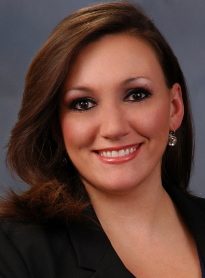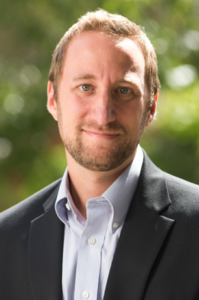Nevada state Sen. Nicole Cannizzaro sponsored legislation in the 2017 session for the New Voices project, and journalism professor Patrick File rallied support that helped lead to its passage.

In doing so, they have ensured the protection of free press and free speech rights in Nevada schools for students, teachers and administrators who believe in open discussion of controversial issues — the foundation of the First Amendment.
Cannizzaro and File were aided by Reno High School teacher Christy Briggs, high-school students Atley Weems and Taylor Pittman, and former Fallon student Lauren Draper, whose 2010 story for her high-school newspaper ignited a controversy.
The Nevada legislation was part of a national push called New Voices to counteract a trend by some school administrators to censor student journalists. A 1980s decision by the U.S. Supreme Court in Hazelwood School District v. Khulmeier had given school authorities the ability to limit student journalists for any “legitimate pedagogical purpose.” It was being used to stop student newspapers from writing about teen pregnancies, for example, or drug abuse, or criticizing administrators.
The bill sets a standard in Nevada that clarifies schools’ ability to limit articles by student journalists only if they create a danger of “substantial disruption” to education — the same free-speech standard applied to T-shirts or hats.
Along with former NPA president Steve Ranson, the students, teachers and Sen. Cannizzaro testified in front of legislative committees in favor of the bill. It passed 21-0 in the Senate and 30-11 in the Assembly.
It was Draper who provided a concete example of the potential problems created by a vague standard when she testified about her experience a half-dozen years ago as a student reporter for The Flash at Churchill County High School. Her story, “Choirgate,” about a teacher who was withholding student audition tapes from a statewide competition, had ignited criticism from the teachers union.

File, who teaches media law at the University of Nevada, Reno, helped round up a diverse list of supporters for the bill. He also carried much of the load in explaining the legal background for legislators.
But it was his testimony about celebrated Nevada educator Earl Wooster that left the biggest impression.
Wooster was denied his high-school diploma in 1915 from Fresno High School because of a speech he gave during his senior year criticizing the school’s lack of emergency exits. HIs lawsuit was one of the first in the country to attempt to confirm students’ free-speech rights.
More recently, File recalled, a student told him he was prohibited from writing about safety concerns at his own school — Earl Wooster High School in Reno.
 Nevada Press Association The best in Nevada journalism since 1924
Nevada Press Association The best in Nevada journalism since 1924